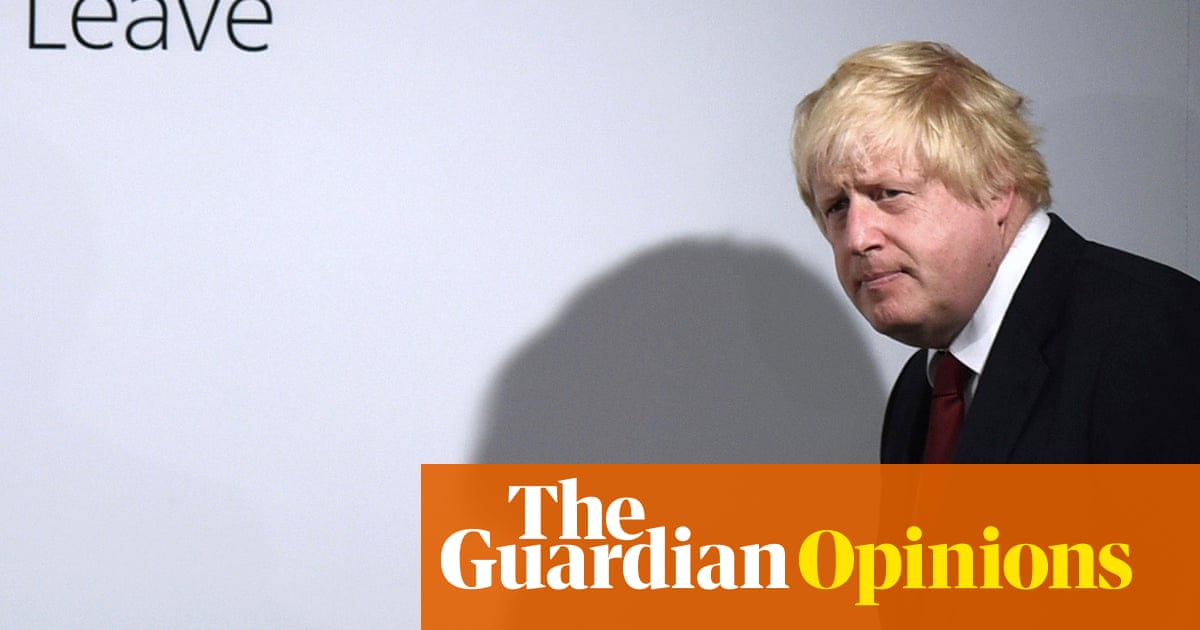
his week’s publication of the draft internal market bill marked the latest twist in the never-ending Brexit drama. If the bill were to become law, it would give ministers new powers to ride roughshod over international law and breach the special protocol for Northern Ireland contained in the withdrawal agreement. The government claimed it was necessary to avoid an “extreme interpretation” of the deal by the EU. The spat has escalated quickly, with talk of legal remedies and trade sanctions.
Now with accelerating absurdity, the government’s claim that it needs to pass this legislation to mitigate the risks of the EU acting in bad faith has itself been condemned by Brussels as an act of bad faith that violates the good faith obligations in the withdrawal agreement. Since these good faith obligations apply to both sides, and plainly rule out the imaginary scenario of an “extreme interpretation” of the agreement by the EU, it is obvious that the bill is an unnecessary provocation.
So this is yet another manufactured crisis. Just as Boris Johnson threatened to break domestic law last autumn, his government now threatens to break international law this year. It is beginning to look like an annual event; perhaps this is the macabre “festival of Brexit” that was promised? Were Dante writing today, Brexit disputes might just be the 10th circle of hell.
The impulse towards destructiveness characterises Johnson’s approach both to government and to politics; it is as much an aesthetic position as a substantive political proposition. By creating an air of division and crisis, the prime minister hopes to position himself as the man who can cut through the chaos, which in reality is of his own creation.
The Tories have set the stage in the hope that each will act their part. Such a deliberatively inflammatory act predictably provoked outrage from Brussels. At home, reopening the same old wounds has brought to life the same old voices. Former prime ministers have rightly cautioned Johnson about the impact on Britain’s international reputation.
The macho assertion of sovereignty is designed to surprise and delight the Tory base, while turning the page on the difficulties the government faced during the summer. After a decade of a perpetual crisis of stagnant wages and living standards, it is little surprise that this form of politics holds appeal for some, being another opportunity to stick two fingers up at the “remainer establishment”.
Just as the late Yogi Berra observed, “it’s like déjà vu all over again”, so it seems likely that the Tory strategy is unchanged: to provoke a major confrontation in order to lower expectations ahead of a substantive climbdown. The threat of no deal is once again being used to occlude the dull reality of any Brexit deal – that it is less good for the economy and means giving up more control rather than taking it back.
Symbolic victories in unimportant areas such as fishing will be paraded while Britain either accepts EU regulation without a say, or has more regulatory autonomy at the price of greater friction at the border. As the Tories used to be so fond of saying, there is no alternative. In such circumstances, it makes sense for Johnson to distract people from the reality with the fantasy of restored greatness.
More interestingly, the Brexit negotiations shed some light on the Tories’ strategy in this parliament. The government has positioned state aid as the principal sticking point in the negotiations, demanding a less restrictive regime. This is the antithesis of the “free market” delusion that has enthralled the Tory party since Thatcher. Why?
It seems to point to a much more significant strategic decision: having been forced by the Covid-19 pandemic to dramatically expand the role of the state in the economy, the natural libertarians at the heart of Johnson’s government appear to have realised that a more active state is popular with the public, so they intend to stay there.
From the furlough scheme, to the promise to build back better, to the position on state aid, there is perhaps more strategic coherence than might initially appear. After all, it has long been established that many voters are right-leaning on social issues and left-leaning on the economy. The Tories may have arrived at the dominant political position in politics today by accident rather than design, but the journey is less significant than the destination. It is perhaps the most important strategic contour of politics in this parliament.
Meanwhile, Labour has left this territory uncontested, jettisoning economic policy as a dividing line in favour of a loud critique of the government’s competence. Doubtless this is conceived as a necessary step to reassert Labour’s claim to be a potential party of government. Polls suggest it is working, with Keir Starmer regarded as more competent than his recent predecessors.
But offering to be a more competent version of the Tories isn’t enough. In the 1990s, New Labour didn’t promise that it would answer the traffic cone hotline within three rings. It offered to modernise the country, to forge a “new Britain”. When Labour promised a better version of austerity in both 2010 and 2015, it was punished at the polls. Voters were distrustful of a party that was offering a watered-down version of the real thing.
Over the summer, the Labour leader has canvassed allies inside the party for their ideas for a political strategy. The open question is whether one has been found, and if so, what it is. In his first six months in post, Starmer has gone a long way towards re-establishing the party’s ability to get a hearing after last year’s electoral drubbing. But the big question of what he wants voters to hear the party say remains unanswered.
• Tom Kibasi is a writer and researcher on politics and economics












